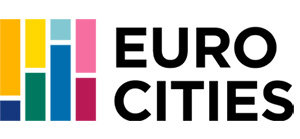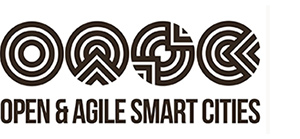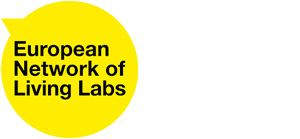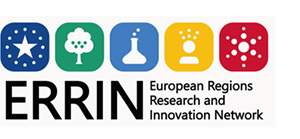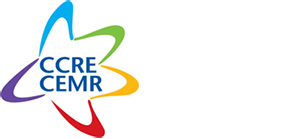
The European way of digital transformation in cities and communities
Go Li.EU Partners networks
The Go Li.EU partner networks consists of five EU member-based associations bringing together a variety of skills, competences and expertise.
A pool of supporters from the industries, research, local and regional governments including elected representatives and national associations will contribute to the more technical, research and participative dimensions of the project including support to organize the supply side in line with Living-in.EU principles.
Go Li.EU addresses the call DIGITAL-2021-DEPLOY-01-LIVING-EU.
Eurocities is the leading network of major European cities bringing together the local governments of over 200 cities, across 38 countries. Since 1986 Eurocities provides a platform for promoting the urban agenda in European policy making and for sharing knowledge and innovative solutions between its member cities. The Eurocities Digital Forum (former Knowledge Society Forum), led by the city of Barcelona, brings together the digital experts of over 160 cities in Europe to address cities’ work, challenges and needs on digital transformation. The forum offers a platform for cities to exchange knowledge and scale-up digital and smart cities projects and initiatives. The Eurocities Digital Forum consists of three working groups that are all interrelated with the digital agenda: data, digital citizenship, and urban digital foresight. They produce position papers, principles, guidelines and publications. As part of the Go Li.EU partner networks,Eurocities will be key to implement and grow the activities of the Living-in.EU initiative working with the rest of the community to achieve its goals.
Open & Agile Smart Cities (OASC) is a global network of over 160 cities in more than30 countries with the goal to shape and create a market for smart city data and services. OASC is promoting the use of open and minimal mechanisms to achieve digital interoperability for scale and replication of digital solutions for the benefit of cities and the local innovation ecosystem. Unlike any other city network, OASC and its member cities are driven by experimentation and implementation. OASC represents its member cities towards a diverse set of stakeholders, including international standards developing organisations such as ITU and ETSI, European and international institutions, as well as research and industry. To achieve its goals, OASC works directly with city administrations in working groups, the OASC Technology Council and the OASC Council of Cities. As part of the Go Li.EU partner networks, OASC will offer a venue for city officials and a variety of stakeholders to exchange and learn from each other.
ENoLL, the European Network of Living Labs, is the international federation of benchmarked Living Labs, user-driven and open innovation ecosystems. The ENoLL network aims at creating pan-European experiments and prototypes for new markets, based on the Digital Single Market. It is an open engagement platform where new business models can be co-designed, experimented with and developed all based on a quadruple helix approach, creating safety nets for experiments and prototypes with new roles of the public sector as enabler and catalyst. ENoLL combines European vertical specialisation domains (health, smart cities, creativity, education etc.) with horizontal and territorial specialisation. As part of the Go Li.EU partner networks, ENoLL Go Li.EU partner network focuses on facilitating knowledge exchange, joint actions and project partnerships among the members, promoting living labs and enabling their implementation worldwide, and influencing policies.
sssERRIN, The European Regions Research and Innovation Network is a well-known Brussels-based platform that gathers around 120 regional organisations from more than 20 European countries. ERRIN supports members to enhance their regional and local research and innovation capacities and further develop their R&I ecosystems. In addition to thematic Working Groups which pick up the topic of digitalisation in cities and regions, ERRIN also has a dedicated cross-cutting ICT WG. Its aim is to provide a platform offering information about important European initiatives, strategies and funding programmes related to ICT topics and their regional dimension. Led by representatives of several European regions and cities, the Working Group aims to engage its members in making the most out of digital transformation. This is done among other things by showcasing relevant opportunities, inspiring practices and solutions of public interest during organised events, encouraging benchmarking. A bottom-up approach which can be found at the core of the WG, allows it to focus on issues of most relevance to members and benefit from links with European projects developed by ERRIN , as part of the Go Li.EU partner networks.
The Council of European Municipalities and Regions (CEMR) is the largest and broadest organisation of local and regional government in Europe. Its members consist of 60 national associations of towns, municipalities and regions from 41 of the 47 Council of Europe member countries, including the 27 member states of the European Union (EU). As part of the Go Li.EU partner networks, CEMR organises and coordinates thematic meetings, expert group meetings, workshops, seminars, and conferences to promote the exchange and dissemination of knowledge and experience at the local and regional level, offer the possibility to EU institutions to present their priorities and achievements, and support the formulation of common positions on issues of concern to local and regional authorities.
